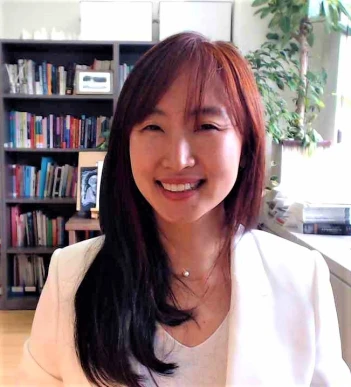On January 24, Sophia Seung-yoon Lee, Professor of Social Policy at the Department of Social Welfare at Chung-Ang University in Seoul, Korea, presented her new book, Varieties of Precarity. Melting Labor and the Failure to Protect Workers in the Korean Welfare State to the members of the FRIBIS Junior Research Group (JRG). At the same time, she introduced the novel concept of “melting labour”. The development she is trying to capture with this term is that traditional, stable employment relationships in South Korea are becoming increasingly rare, while the boundaries between the different types of work and jobs are becoming blurred. She thus draws attention to forms of precarious work that currently exist in South Korea — despite the economic successes and the presence of the welfare state.
We asked her how she felt about the discussion after her lecture:
„An opportunity to deliver a lecture on my newly published book, Varieties of Precarity: Melting Labour and the Failure to Protect Workers in South Korean Welfare State at FRIBIS was an enriching experience for me. The atmosphere during the event was invigorating and intellectually stimulating, underscored by the participants’ enthusiasm and the depth of the discussion. It was particularly impressive to see the audience’s level of interest and understanding regarding the labour market and social policy in Korea, as well as the insightful inquiries about the research methodologies employed. Such interactions are invaluable, encouraging a multidisciplinary approach to tackling complex social issues.“
About Prof. Sophia Seung-yoon Lee
Sophia Seung-yoon Lee, who has a PhD in Social Policy from Oxford university, is a respected expert in the field of East Asian welfare states and labour markets as well as precarious work. Her expertise has made a contribution to European researchers’ understanding of the challenges of precarious work and protective measures in East Asian countries.
